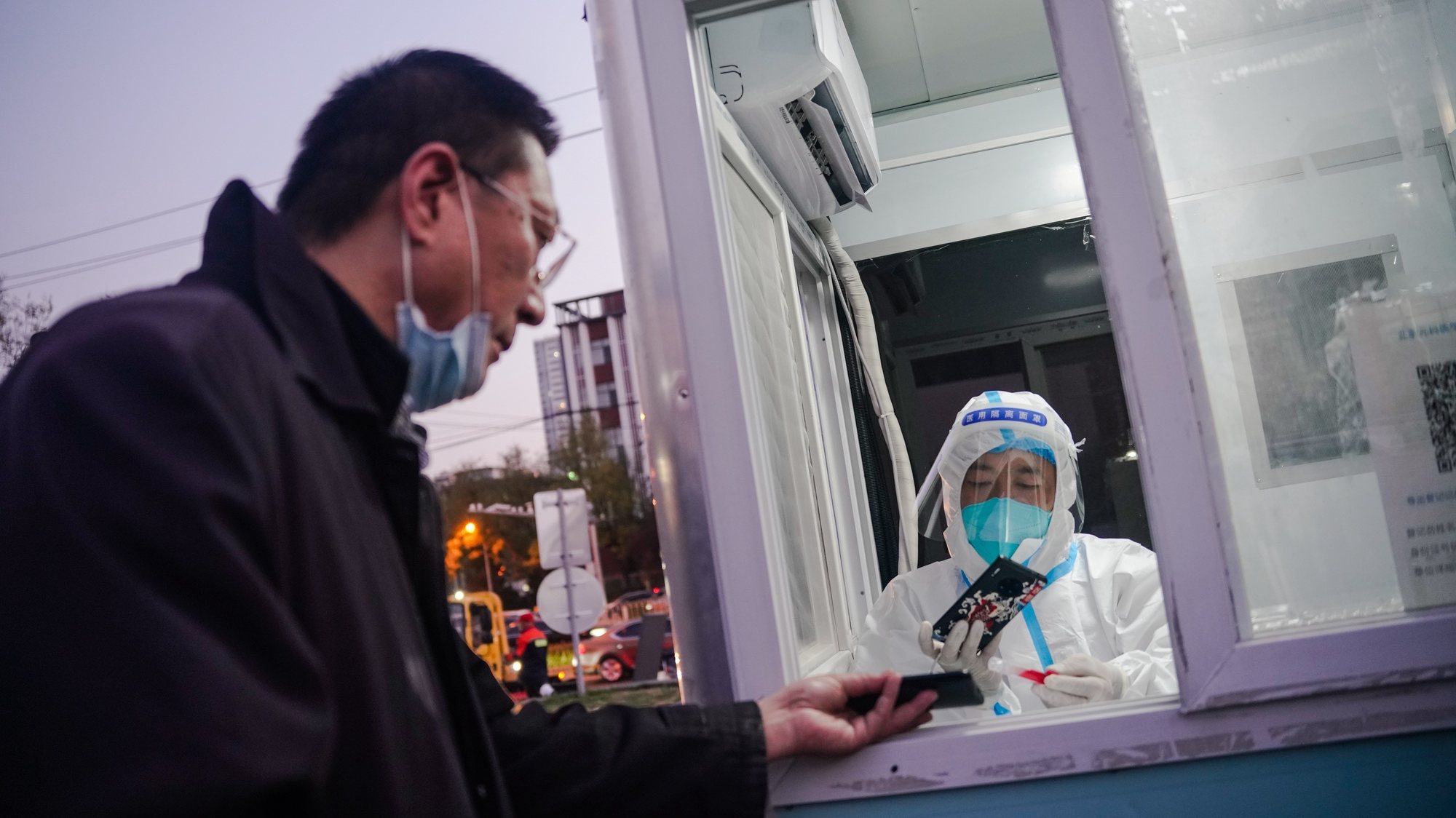Guangzhou, one of China’s largest cities, on Monday imposed a lockdown in the main district, which includes suspending public transportation and requiring residents who want to leave their homes to test negative for Covid-19.
The outbreak in Guangzhou is a test case for China’s attempt to take a more “targeted” approach while maintaining a “zero case” strategy for covid-19. The capital of Guangdong province registered almost 9,000 cases in the last 24 hoursby far the largest active outbreak in the country.
China is the only major country in the world that continues to impose highly restrictive epidemic prevention measuresincluding the lockdown of entire districts and cities, mass testing and isolation of all positive cases and their direct contacts.
Guangzhou’s Baiyun District is also face-to-face classes suspended in blocked schools and university spaces???????? The measures should last until Friday, the city announced.
“Everything is on hold,” described Alexandre Castro, a Portuguese soccer coach who has been living in the Chinese city for three years. “We already have food stored for at least two weeks”he told the Lusa news agency.
On Sunday, Beijing recorded two deaths. They were the first deaths in the entire country, in more than six months, caused by the new Coronavirus.
While critics have questioned the data from China, and specifically the death toll, the Chinese strategy has prevented massive outbreaks and kept new daily cases lower than the rest of the world????????
National guidelines released earlier this month urged local governments to take a targeted, scientific approach and avoid unnecessary measures.
The authorities want to avoid the blockade of entire cities, to try to minimize the impact on economic activity, but without giving up the strategy aimed at eliminating outbreaks of the new Coronavirus, having announced a reduction in the quarantine period for travelers from abroad and contacts of positive cases, and the end of the interruption of flights with cases on board, among other measures.
The relaxation of some measures is an attempt to make policies more “scientific and precise,” said Lei Haichao, deputy director of the National Health Commission.
Source: Observadora
